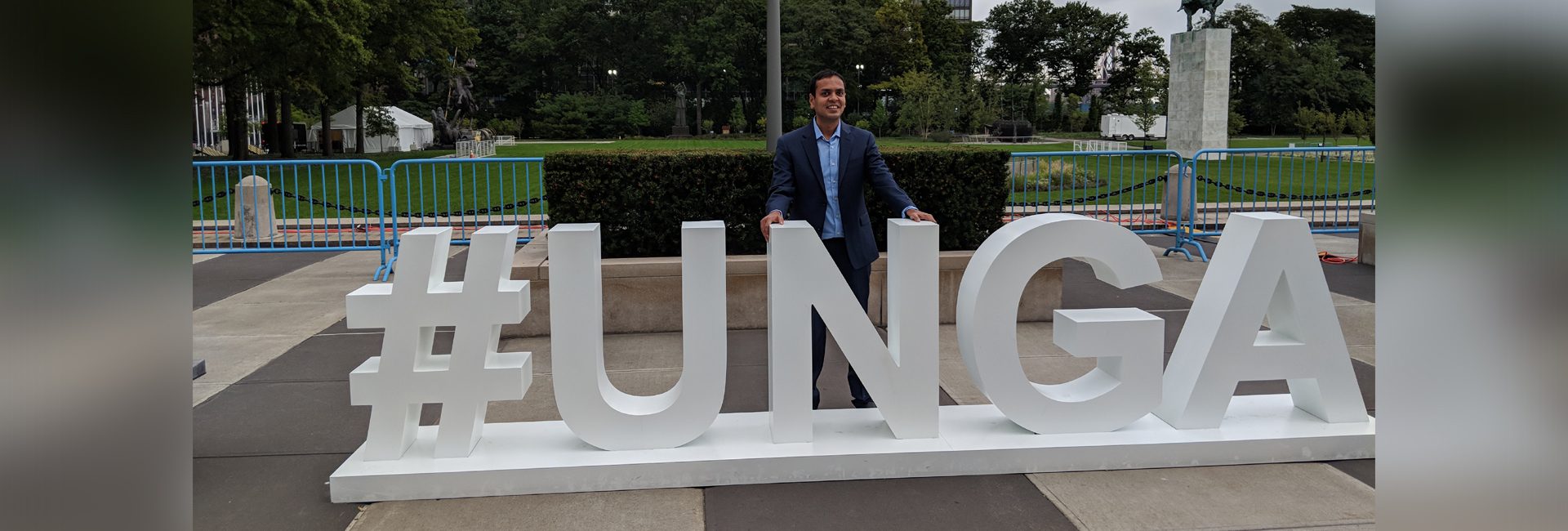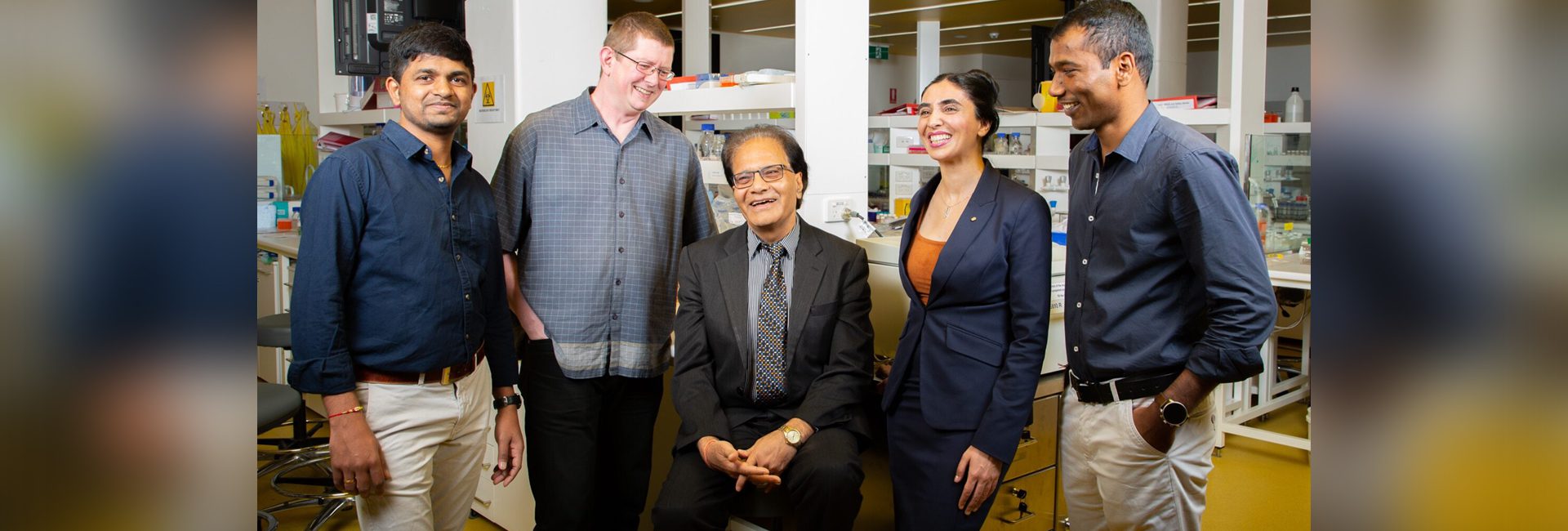(July 24, 2022) Just like thousands of Indian students, Pranav Khaitan too came to the United State of America with a big suitcase full of books, a bottle of pickle prepared by his mom, and the dream of becoming a successful software engineer. As he pursued his master’s in computer science at Stanford University, little did this Kolkata lad know that one day he would play an instrumental role in eradicating world hunger. Currently working as a senior engineering lead at Google, Pranav’s quest to solve humanitarian aid problems using Artificial Intelligence (AI), helped United Nations World Food Programme (WFP) win the Nobel Peace Prize in 2020.
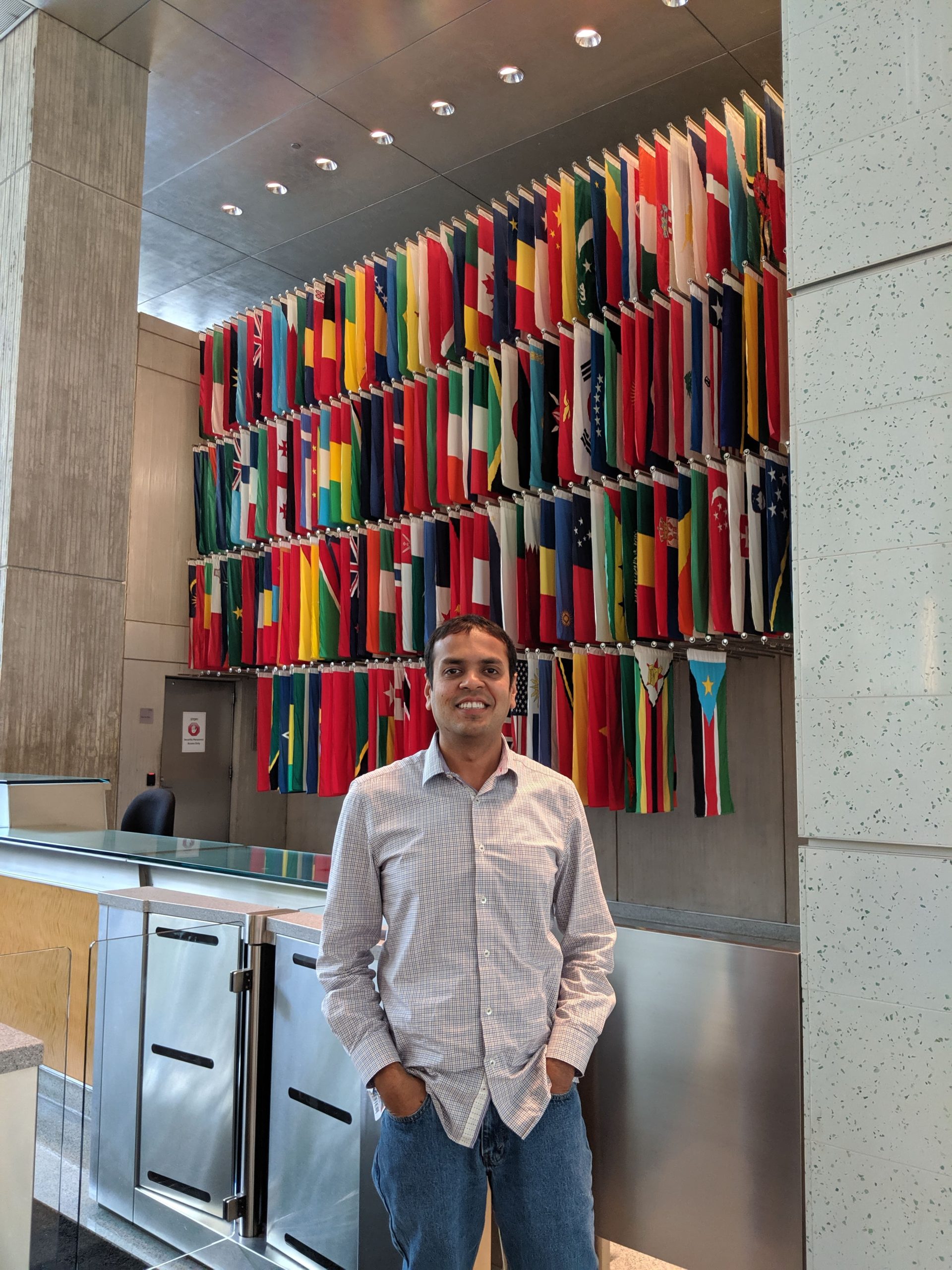
Pranav Khaitan at the World Bank
As he connects with me over a call, after a busy day at work, Pranav discusses various other AI projects that he has worked on in the last few years. “About three years back, I realised that AI-based technology has advanced so much in the last decade and yet we do not use it to provide any kind of humanitarian aid. I started looking at ways to connect the dots and reached out to the United Nations World Food Programme about the same. The organisation, which was more than accepting of the idea, helped me figure out ways to solve the issue with the help of AI,” says the engineer, during his interaction with Global Indian.
Pranav’s AI-based programme can help organisations identify areas affected by natural disasters, such as earthquakes, hurricanes, and floods, within 24 to 72 hours – a task that earlier took over two weeks through a manual process. “I realised that one of the biggest issues that people in the affected areas face is the lack of humanitarian aid. Many organisations and big nations take time to analyse how much and where to send the aid. And by the time food, medical and other logistics reach the affected people, it is already too late. I wanted to close this gap,” shares the engineer, who is also a member of the WFP’s Advisory Council and leads its artificial intelligence (AI) operations.
The American dream
Though he was born in Kolkata, Pranav shares that he had the “privilege of staying at various Indian cities while growing up.” More into sports, Pranav and his younger brother loved playing cricket after school. “I wasn’t so much into studies as a kid, actually,” laughs the engineer, adding, “I loved playing with my friends. We would have a good match of gully cricket or kabbadi every other day.” However, his love for machines began at a young age. “My brother and I would tinker around with machines or small toys. We talked for hours about how to build robot and use technology innovatively,” he shares, adding that he has always been inspired by his little brother.
During his high-school years, the engineer enrolled in a boarding school in Bengaluru, where he got interested in computer and software science. This led him to do his bachelor’s in computer science at the National Institute of Technology (NIT), Rourkela. He worked at Microsoft as an intern, however his quest to learn more about software technology brought him to the Stanford University in 2009.
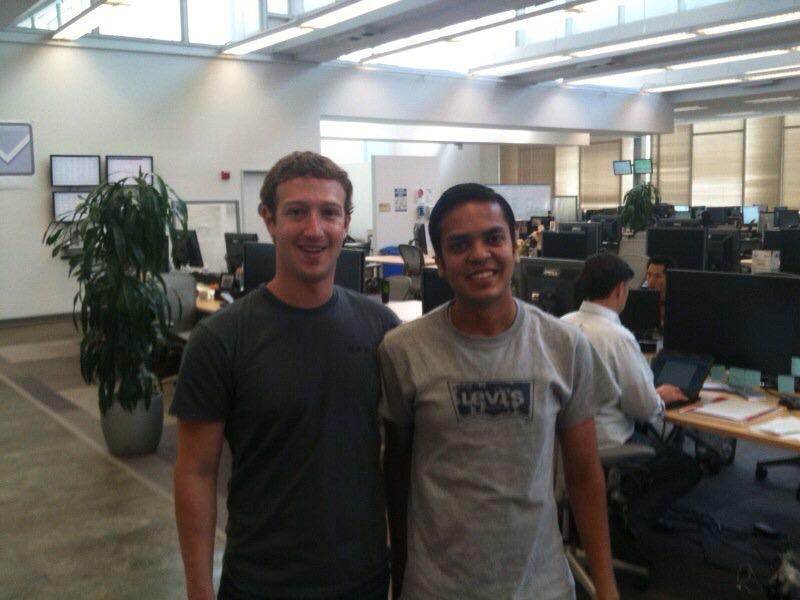
Pranav with Mark Zuckerberg, CEO, Facebook
Ask the engineer about his college experience and he quips, “Education in USA is very different from that in India.” Explaining further, he adds, “In my graduation years at NIT my curriculum was a lot more examination-based and focussed mostly on the academics. However, at Stanford we had so much going on. There were so many activities – in and around the University – that one could take part in. Each student could customise their own academic experience. Even though I was enrolled in computer science, I would read so much more about various subjects.”
Pranav’s first internship was in Facebook – which was still a startup, back then. Working closely with Mark Zuckerberg, Pranav built the infrastructure for new Facebook Messaging System. “It was an amazing experience. Facebook was very small at the time, and whole team was very friendly. Even though I was a young engineer, my contributions were valued. My internship lasted a few months, but I learnt a lot and made some really great friends,” he adds.
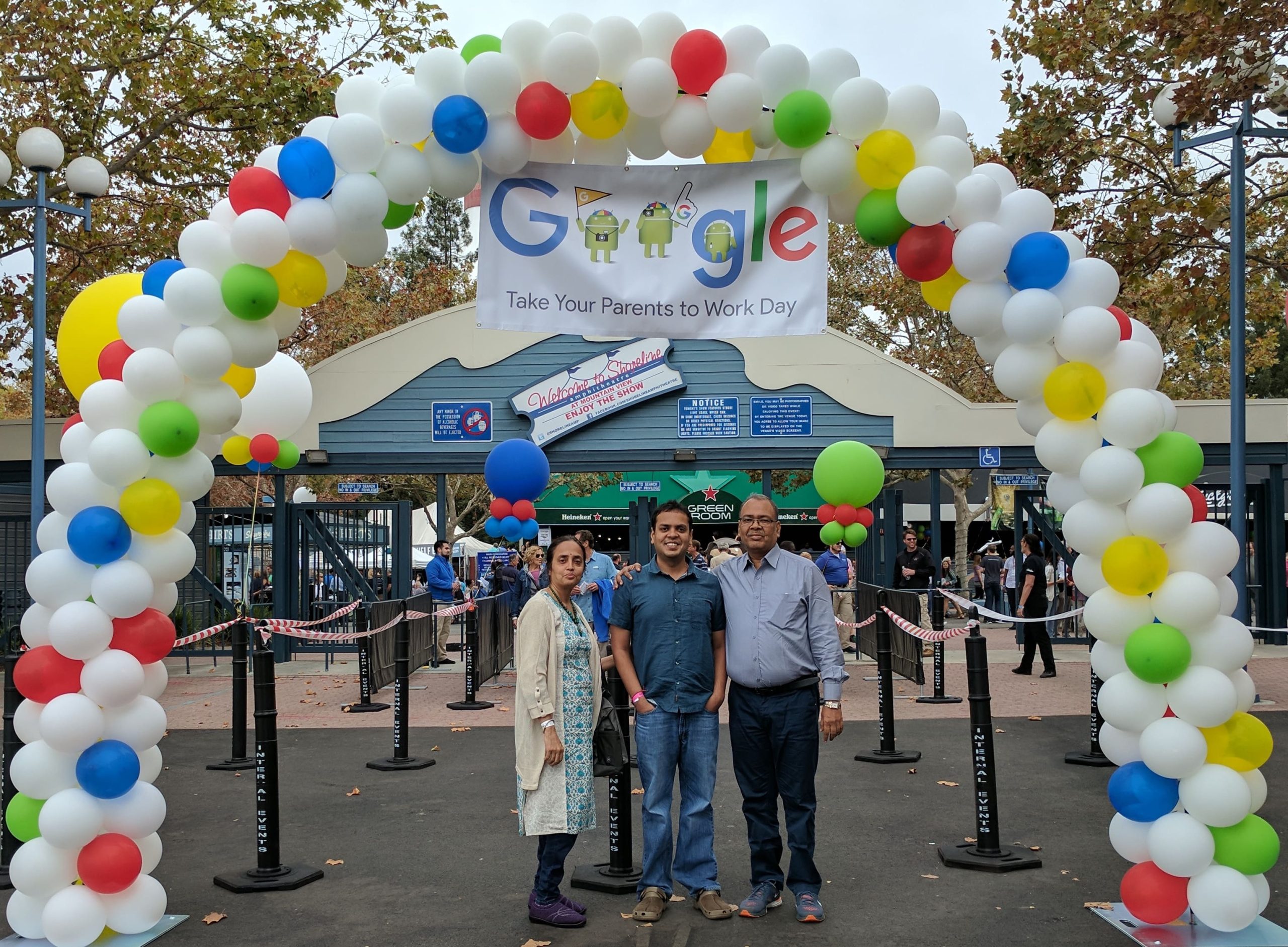
Pranav with his parents at Google’s ‘Take Your Parents To Work’ day
After finishing his course at Stanford, Pranav joined Google as a software engineer in 2011 which opened the gates to AI for him. “Of the many things I worked on, one is developing Google knowledge graph for the Google Search. I was also one of the founding leads of the Machine Intelligence organisation at the company,” shares the engineer, who has led several research and development programmes on AI-based technologies that power many Google products, including Chrome, YouTube and Android.
A Nobel cause
While he loved his job, he was perturbed by the huge gap between technology and humans. Although Google and other tech companies were using AI-based programme, the social space was completely untouched by the developments. This gap prompted Pranav to start working on an AI-based tool that can help disaster responders, major organisations and countries to reach the affected people.
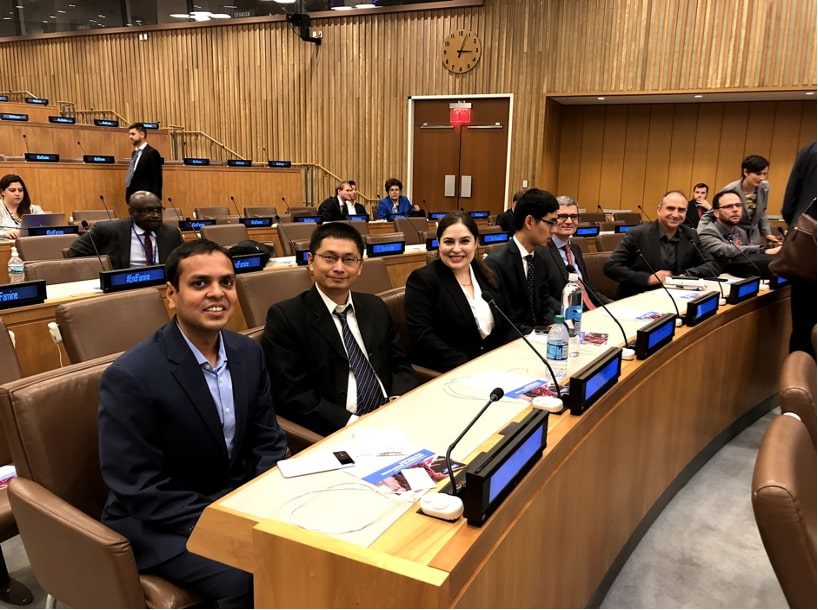
Pranav at the UN
“I built a team of engineers in Google, and later reached out to researchers to help with the project. After we developed the AI programme, to test it we evaluated major past disasters that hit the world, such as Haiti earthquake and series of earthquakes in Indonesia. The technology was able to identify the disaster hit areas quite accurately – more than 75 percent in every case,” shares the engineer. It was after this successful testing that the team approached the leaders at United Nations World Food Programme, who were very excited to collaborate on the project.
After they received the Nobel Prize in 2020, the WFP even thanked the engineer for his pioneering use of AI technology to help with social causes. “More than happy, I felt humbled. To be able to use my skills to help any humanitarian cause is an honour,” shares the engineer, who partnered with the World Bank on another project – Famine Action Mechanism in 2018. “We use Artificial Intelligence and Machine Learning to detect famine in any region before the disaster hits. This way the aids can be procured and distributed without any hurdles,” he shares.
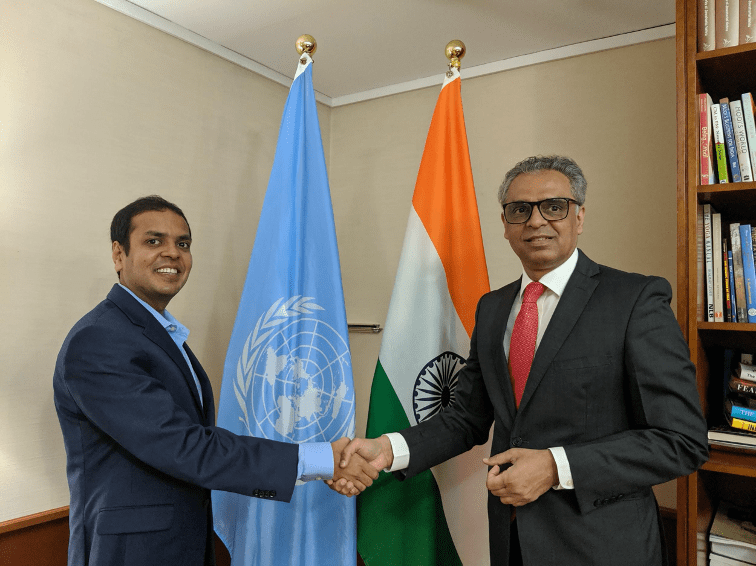
Pranav with Syed Akbaruddin, Ambassador and Permanent Representative of India to the UN
But his work is far from done. The Google engineer, who greatly misses Indian street food in California, is working on developing AI programmes to deal with several other social issues, including floods and cyclones. “My parents taught me that being successful holds no meaning if I am not giving back to the society. I am just following that,” he signs off.
Also Read: Ameet Patil: Using deep tech AI to digitize hospitality in India

